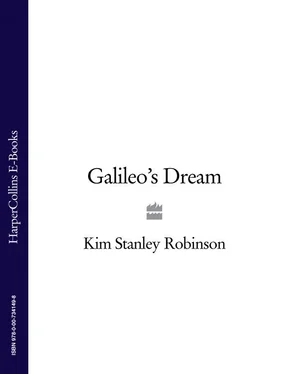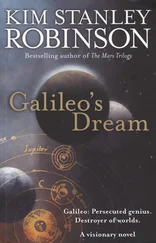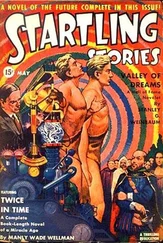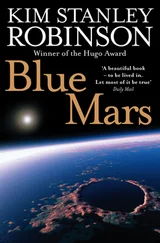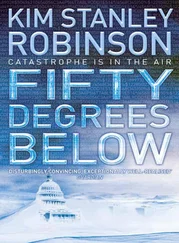1 ...6 7 8 10 11 12 ...32 But perhaps it may be said that no great credit is due for the making of an instrument, when one is told beforehand that the instrument exists. To this I reply, the help which the information gave me consisted of exciting my thoughts in that particular direction, and without that, of course it is possible they may never have gone that way; but that the simple information itself made the act of invention easier to me I deny, and say more-to find the solution to a definite problem requires a greater effort of genius than to resolve one not specified; for in the latter case accident, mere chance, may play the greater part, while in the former all follows from the work of the reasoning and intelligent mind. Thus, we are quite sure that the Dutchman was a simple spectacle-maker, who, handling by chance different forms of glasses, looked also by chance through two of them, and saw and noted the surprising result, and thus found the instrument. Whereas I, at the mere news of the effect obtained, discovered the same instrument, not by chance, but by way of pure reasoning! I was not assisted in any way by the knowledge that the conclusion at which I aimed already existed. Some people may believe that the certainty of the result aimed at affords great help in attaining it: let them read history, and they will find that Archites made a dove that could fly, and that Archimedes made a mirror that burned objects at great distances. Now by reasoning on these things such people will doubtless be able, with very little trouble and with great honour and advantage, to tell us how they were constructed. No? If they do not succeed, they will then be able to testify to their own satisfaction that the ease of fabrication which they had promised themselves from the foreknowledge of the result is very much less than what they had imagined-
‘Idiots that they are!’ Galileo shouted but did not add to the end of the letter, signing it conventionally and sending it off.
Naturally Sarpi did not forward this letter to the Senate, but rather came out to Padua to assuage his angry friend. ‘I know,’ he said apologetically, putting his hand to Galileo’s freckled cheek, now as red as his hair as he recounted the reasons for his fury. ‘It isn’t fair.’
And it was even less fair than Galileo thought; for Sarpi now told him that the Senate had decided that the stipulated raise in Galileo’s salary was not to go into effect immediately after all, but would begin the following January.
At this Galileo blew up again. And after Sarpi left he immediately took action to deal with the insults, working in two directions. In Venice, he returned to the city with a much more powerful spyglass, the best his artisans had made so far, and gave it to the Doge as a present, indicating again how useful it would be to the protection of the Republic, how grateful he was for the new contract, how much the splendiferousness of the Doge illuminated not just the Serenissima but the entire watershed of the Po, et cetera. Dona would take note of this generosity, perhaps, in the face of what could be seen as a very tepid response from his Senate, even a rebuff; and then maybe he would act to revise the raise accordingly. It was not the likeliest response, but it could happen.
Then, on the Florentine front, always a part of his life, even in these last seventeen years in Padua working for Venice, Galileo wrote to young Grand Duke Cosimo’s secretary Belisario Vinta, telling him about the spyglass, offering to give the prince one of them and to instruct him in its use. A few of the closing phrases of this letter began the process of asking for patronage at the Medici court.
There were some difficulties to be negotiated here. Galileo had been tutor to young Cosimo when his father Ferdinando was the Grand Duke, and that was good. But he had also been asked to work up a horoscope for Ferdinando the previous year, and had done so, and found that the stars predicted a long and healthy life for the Grand Duke, in the usual way; but then shortly thereafter Ferdinando had died. That was bad. In the tumult of the funeral and the succession no one had said anything, nor even seemed to remember the horoscope, except for a single penetrating glance from Vinta the next time they met. So perhaps in the end it had not mattered; and Galileo had taught Cosimo his mathematics, and treated him very kindly, of course, so that they had grown fond of one another. Cosimo was a bright young man, and Cosimo’s mother, the Grand Duchess Christina, was a very intelligent woman, and fond of Galileo-indeed, his true first patron at that court. And as Cosimo was so young, and new to his rule, she was a regent-like power. So the possibilities there were very real. And when all was said and done, Galileo was a Florentine, it was his home. His family was still there, which was bad, but unavoidable.
So, still very angry at the Venetians for their ingratitude, he neglected his classes at Padua, wrote great flurries of letters to influential friends, and began to lay plans to move.
Despite the discord and chaos of the tumble of days, he spent every cloudless night out in the garden, looking through the best glass they had on hand. One night he woke Mazzoleni and took him out to look at the moon. The old man peered up through the tube and then pulled his head back, grinning, shaking his head in amazement. ‘What does it mean?’
‘It’s a world, like this one.’
‘Are there people there?’
‘How should I know?’
When the moon was up, and not too full, he looked at it. Long ago he had taken drawing lessons from his Florentine friend Ostilio Ricci, the better to be able to sketch his mechanical ideas. One of the exercises in Ricci’s treatise on perspectival drawing had been to draw spheres studded with geometrical figures, like raised pyramids or cubes, each one of which had to be drawn slightly differently to indicate where they stood on the hidden surface of the sphere underneath them. This was a meticulous and painstaking form of practice, very polito, at which Ricci had conceded Galileo eventually became the superior. Now Galileo found that it had given him the necessary skills, not just to draw the things the glass showed on the moon, but even to see them in the first place.
It was particularly revealing to draw the moon’s terminator, where light and shadow mixed in patterns that changed from night to night. As he wrote in his workbook, With the moon in various aspects to the Sun, some peaks within the dark part of the moon appear drenched in light, although very far from the boundary line of the light and darkness. Comparing their distance from that boundary line to the entire lunar diameter, I found that this interval sometimes exceeds the twentieth part of the diameter. The moon’s diameter had been proposed since antiquity to be about two thousand miles; thus he had enough to complete a simple geometrical calculation of the height of these lunar mountains. He drew the moon as a circle, then on it drew a triangle with one side the radius at the terminator, another a radius running up to the tip of the lit mountain in the dark zone, and the third line following the beam of sunlight from the terminator to the mountain top. The two sides meeting at the terminator would be at right angles, and he had distances for both, based on the assumed diameter, and thus he could use the Pythagorean theorem to calculate the length of the hypotenuse. Subtracting the moon’s radius from that hypotenuse, one was left with about four miles of difference-which was the height of the mountain above the surface.
But on Earth, he wrote, no mountains exist that reach even to a perpendicular height of one mile. The mountains on the moon were taller than the Alps!
He spotted a perfectly round shape right in the middle of the terminator, and very near the equator. He drew it a bit bigger than he saw it, to emphasize how prominent it was to the eye, and how clearly it stood out from its surroundings. A good astronomical drawing, he decided, had to evoke the sight that subsequent viewers would look for, rather than represent it to perfect scale, which in the diminution of the drawing simply made it too small. Paying attention was itself a kind of magnification.
Читать дальше
